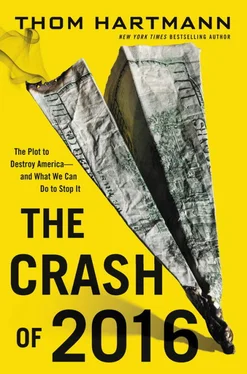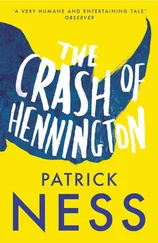For one, each Great Crash is separated by four generations (there’s those eighty years).
Arnold Toynbee and others, over the millennia, have pointed out that when the generation that remembers the last Great War has died out, a nation is set on course—some would say doomed —to have another war. While the horrors of war are forgotten, the monuments and “heroes” of war are everywhere.
The same is true of the death of the last person remembering a Great Crash.
Daniel Quinn popularized the phrase “the Great Forgetting,” and it’s true not only of civilizations but of generations as well. Our memories—as a culture—are largely defined by the practical memories of those who participate in media and government, mostly people from their thirties to their sixties. So, at the most, we as a popular culture remember fifty or so years of history at a slice.
My grandfather was a socialist, my dad a Republican. I’m a progressive. My grandfather, in the first few decades of the twentieth century, had no recollection of a crisis during a previous “socialist” time, and so at one time thought the Soviet experiment might even work out well. My dad, born in 1929, had no memory of a crisis during the administration of a Republican; in fact, his experience of Eisenhower’s presidency had been that of a Great Prosperity. And, born in the 1950s, I don’t remember the battles or challenges that my dad saw FDR face.
There are great cycles to all of history, including American history. And this cycle rolls forward as each new generation comes to power without personal memory of the mistakes previous generations made, and without memory of the solutions previous generations employed.
Authors William Strauss and Neil Howe suggested, in their seminal 1997 book The Fourth Turning , 15that the United States would, in the first decades of the twenty-first century, once again enter the catastrophic phase of a historic cycle that happens every fourth generation (roughly every eighty years): an economic collapse followed by a great war.
It was a bold prediction, given the Clinton Prosperity in the late 1990s. But it was prophetic.
Less than a decade later, in the fall of 2006, the Federal Reserve Bank of Saint Louis—the part of the larger Fed that compiles housing statistics—noted that housing starts dropped 14.6 percent that month, bringing the total for the twelve-month federal budget year of October-to-October to a 27 percent crash. 16To make matters worse, building permits were also in free fall, having dropped 28 percent year-to-year at that point.
This was the housing bubble bursting, which triggered the financial crisis of 2007–08.
The Great Forgetting had again descended on the nation, and eighty years after Black Tuesday 1929, the United States was in two full-scale wars and constructing a massive worldwide war machine built on Predator drones.
In his First Inaugural Address in January 2009, a young President Barack Obama spoke, just as FDR had four generations earlier, to a nation again gripped by an economic crisis.
It was a balmy 42 degrees in Washington, DC, the day Franklin Delano Roosevelt was sworn in nearly eighty years earlier in the midst of a Great Depression.
But as if the political and economic world had grown colder and harder, it was only 28 degrees on Barack Obama’s Inauguration Day, with those on the National Mall exhaling white wisps into the freezing air.
I stood about a hundred feet from President Obama as he was sworn in. Just behind him, George W. Bush rolled his eyes and made silly, exaggerated “flipper” applause motions through much of the speech. Dick Cheney, in a wheelchair and covered with a blanket, barely twitched. Their wives sat behind them.
To my left were the assembled members of Congress and the Supreme Court, in front of me the new president, and to my right was the international press corps. In front of the president were nearly two million people, an ocean of humanity that stretched from the Capitol, where we stood on a second-floor balcony, down the National Mall to and beyond where the Washington Memorial pierced the sky.
He began by talking about how the words dictated by the Constitution to swear a new president into office had “been spoken during rising tides of prosperity and the still waters of peace. Yet, every so often the oath is taken amidst gathering clouds and raging storms.” 17
It was the perfect oratorical device, because that very month over 800,000 Americans had lost their jobs, and over a half million had come to the brink of losing their homes. The stock market had crashed, banks were in a crisis worldwide, and two foreign wars were sucking us dry and devastating our image around the world.
“That we are in the midst of crisis is now well understood,” President Obama said. “Our nation is at war against a far-reaching network of violence and hatred. Our economy is badly weakened, a consequence of greed and irresponsibility on the part of some but also our collective failure to make hard choices and prepare the nation for a new age.
“Homes have been lost, jobs shed, businesses shuttered. Our health care is too costly, our schools fail too many, and each day brings further evidence that the ways we use energy strengthen our adversaries and threaten our planet.
“These are the indicators of crisis, subject to data and statistics,” Obama continued. “Less measurable, but no less profound, is a sapping of confidence across our land; a nagging fear that America’s decline is inevitable, that the next generation must lower its sights.”
The cycle had come around again. While the last Great Crash is preserved in our history books, newspaper archives, and old film reels, very few people alive actually remember it, thus setting it up to happen again.
But just as Roosevelt had done in his first inaugural by saying, “The people of the United States have not failed,” President Obama inspired hope on that day of crisis.
“Today I say to you that the challenges we face are real, they are serious and they are many. They will not be met easily or in a short span of time,” he said. “But know this, America: They will be met.”
Those final four words brought an eruption of applause from many of the members of Congress, and a roar from the two million people stretching down the National Mall all the way to the Washington Monument. Reporters near me leaned forward in rapt attention.
Sounding like a modern-day Franklin Roosevelt, President Obama pressed on.
“The state of our economy calls for action: bold and swift. And we will act not only to create new jobs but to lay a new foundation for growth.
“We will build the roads and bridges, the electric grids and digital lines that feed our commerce and bind us together.
“We will restore science to its rightful place and wield technology’s wonders to raise health care’s quality and lower its costs.
“We will harness the sun and the winds and the soil to fuel our cars and run our factories. And we will transform our schools and colleges and universities to meet the demands of a new age.
“All this we can do. All this we will do.”
The reality, however, remained the same. There were few still alive, when Obama was sworn in, who remembered Franklin D. Roosevelt’s response to the Great Depression.
And, thus, as soon as his speech was over, the president’s hopeful and idealistic rhetoric ran headfirst into the Great Forgetting, guaranteeing the Crash of 2016.
But what, exactly, is it that we collectively forget every fourth generation that repeatedly threatens the survival of the United States?
After the last Great Crash, FDR understood he was up against more than an economic crisis. He was also up against a counterrevolution, which had caused the Great Crash and was unabashedly seeking to hang on to the power of our government and economy that they’d held for over two decades. They were America’s plutocracy—the wealthy bankers and industrialists who put their own personal enrichment ahead of the well-being of the nation with disastrous results.
Читать дальше












